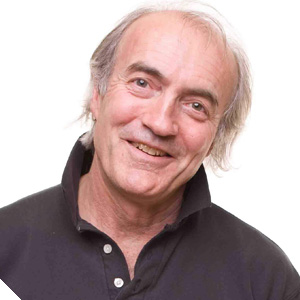UXLx Live
More information on Buxton and his work can be found at: www.billbuxton.com

This is a vision that I played a part in shaping, and one that I still believe in. But by the same token, we are now into the second decade of the 21st century, and such transparency and seamlessness is largely still wanting. The 5-10 minutes wasted at the start of almost every meeting while we struggle to hook our laptops up to the projector is just one example.
In this talk, I want to speak to this problem and how we might adjust our thinking and priorities in order to address it, and thereby accelerate the realization of Weiser's vision.
I will argue that a key part of this requires our focusing as much on machine-machine as we do on human-machine interaction. Stated a different way, I believe that social computing is at the core, but social computing amongst the society of appliances and services – perhaps even more than the society of people. (Obviously the two societies are interwoven.)
In sociological terms, this brings us to ask questions such as, "What are the social mores within the society of such devices?" How to they gracefully approach each other and connect, or take their leave and disconnect? How to they behave alone vs together? The point to emphasize here is that besides aggregation and disaggregation, it might be even more about the transitions between one and the other.
As with the society of people, appropriate behavior is largely driven by context: social, cultural, physical, intentional, etc. This helps tie in notions such as foreground/background interaction, sensor networks, ambient intelligence, etc.
In general, this talk is as much (or ore) about asking questions as it is about answering them. It's real intent is to say that we need to go beyond our current focus on individual devices or services, and look at things from an ecological perspective. The accumulated complexity of a large number of easy to use elegant devices still surpasses the user's threshold of frustration. Our current path of focusing on individual gadgets, apps and services, just transfers where the complexity lies, and increases it, rather than reduces it overall.
My hope is to frame and stimulate a conversation around a different path – one where more of the right technology reduces overall complexity while geometrically increasing the value to the community of users.